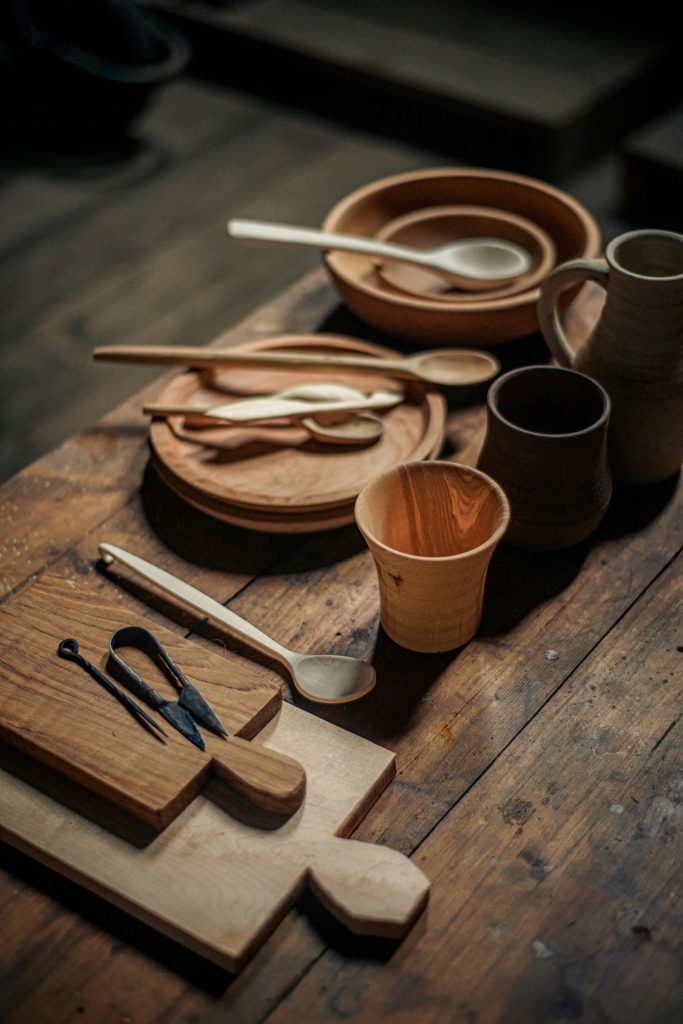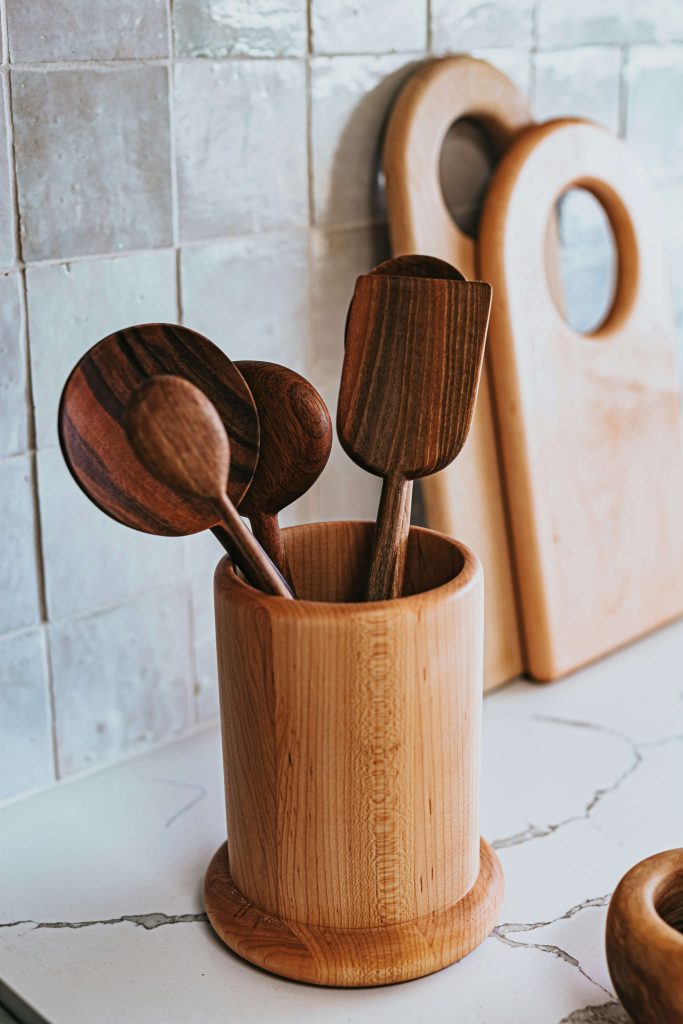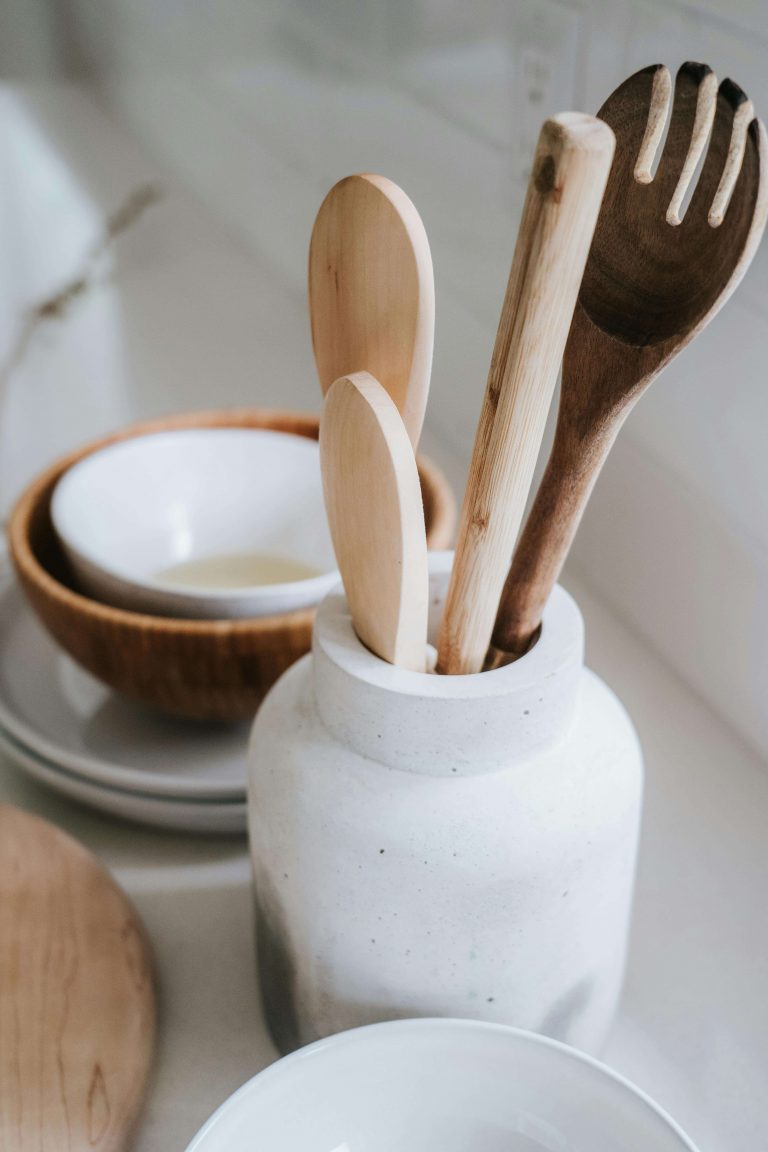Let’s be honest—there’s something about a well-worn wooden spoon that just feels right when you’re stirring a pot of homemade stew or flipping pancakes on a Sunday morning.
Wooden utensils bring charm to the kitchen, but they can also be a little high maintenance when used often. If you’ve ever pulled out a cracked spoon or warped spatula, you’ll know the heartache!
The good news? A little care goes a long way. Here’s how to keep your wooden utensils happy, healthy, and looking as good as the day you bought them.
No dishwashers, no soaking
Wood and water don’t get along for long. I always hand wash my wooden spoons and spatulas with warm, soapy water right after use. Do not let them sit in the sink, and absolutely no dishwashers—they strip the natural oils from the wood and can cause cracking or warping.
Once I’ve washed them, I give them a quick towel dry and leave them to air-dry completely. Trust me, it makes a difference.
Oiling your wooden utensils
Just like your skin needs moisturising, so does wood. Every few weeks (or whenever my utensils start to look a little grey and dry), I give them an oil treatment. I use food-grade mineral oil or a dab of coconut oil—just rub it in with a clean cloth, let it sit for a few hours (or overnight), and wipe off the excess.
This not only keeps them from drying out and cracking, but it also gives them that beautiful, rich glow.

Avoid extreme temperatures
I once left my favourite spoon next to the stovetop, and when I picked it up, it had a tiny split forming—lesson learned! Keep wooden utensils away from hot plates, direct sunlight, and any other heat sources. Too much heat causes the wood to expand and contract, and that’s when cracks sneak in.
Read more: How to remove water stains from wood with items you have at home
Store smart
I like to store mine upright in a utensil holder so they can breathe. If they’re lying flat and crammed in a drawer, they’re more likely to trap moisture or get damaged by sharper tools.
Make sure they’re completely dry before storing. Damp wood in a dark space? That’s how you get mould, and no one wants that.
Deep clean (When needed)
Every now and then, especially if they’ve touched something like raw meat or strong-smelling spices, I give them a quick vinegar rinse—equal parts water and white vinegar. Spray it on, let it sit for a minute or two, then rinse and dry as usual. If your spoon has absorbed strong smells (hello garlic!), you can also rub it with lemon juice and a bit of coarse salt to freshen it up.

Wooden utensils aren’t just tools—they’re the kind of kitchen companions that age gracefully if you treat them right. With a little love and the right habits, they’ll stick around for years, adding that rustic charm to your cooking rituals.
So next time you reach for that favourite spoon, give it a moment of gratitude—and maybe a little oil rub while you’re at it.
ALSO SEE: HOW TO TAKE CARE OF WOODEN SPOONS AND OTHER UTENSILS
Image: Pexels

